Roland Hayes was a well-known and brilliant tenor who became the first African-American man to earn international fame as a concert vocalist. He was born to former slaves in Curryville, Georgia in 1887. He later attended Fisk University and briefly toured with the Fisk Jubilee Singers. During his early career days, many managers refused to work with him because of the color of his skin, but Hayes did not give up. He continued to invest in his career. He raised money and arranged to finance his own performances, which included Negro spirituals, lieder and arias by Mozart, Shubert and Tchaikovsky.
In 1942, Hayes along with his wife Helen and their daughter sat in a white’s only section in a shoe store and were thrown out of the store. He Hayes defended his family, he was thrown down beaten and his wife arrested. And the governor of the state was just fine with the actions. About a week later, in response to the incident, Governor Eugene Talmadge warned blacks who didn’t agree with segregation “to stay out of Georgia.” Talmadge promised, “We are going to keep the Jim Crow laws and protect them.” Although Hayes claimed that he was not bitter, he and his family left Georgia not long afterward and eventually sold their 600-acre farm in 1948. The incident was the inspiration to Langston Hughes poem, “Roland Hayes Beaten”.
In 1962, Hayes gave a concert at Carnegie Hall to celebrate his 75th birthday. He raised funds for the American Missionary Association College Centennials Fund. He spent his later years encouraging young musicians by serving as a mentor, giving freely of his talent, time, and financial resources to help them. He also taught at Boston University and received many honorary doctoral degrees and awards including the NAACP Spingarn Medal. Hayes gave his final concert in 1973 at the Longy School of Music in Cambridge, Massachusetts. He died on January 1, 1977, in Boston and is buried at Mount Hope Cemetery in Dorchester, Massachusetts. In 1991 the Georgia Music Hall of Fame inducted Hayes posthumously. In 1995 the Georgia Department of Natural Resources erected an official historic marker in Hayes’s honor in Calhoun. In 2000 the Roland Hayes Museum opened in the Harris Arts Center in Calhoun, where concerts are held annually in his honor.
source:
Read more about Roland Hayes at:
Owens, Joanne M. “Roland Hayes (1887-1977).” New Georgia Encyclopedia. 14 November 2013. Web. 24 November 2015.






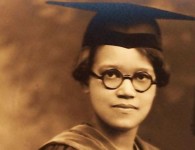
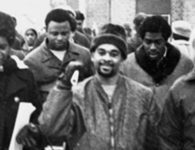
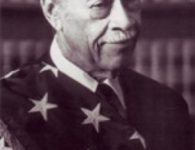

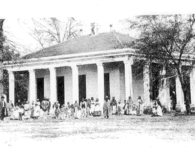
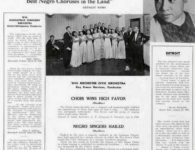


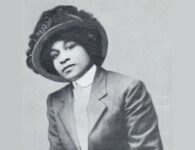
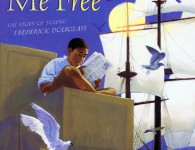



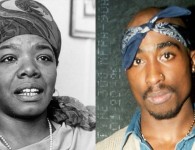

1 Comment
Strange how all this hidden and unacknowledged history is being brought out of the closet after all these years concerning blacks in this country and in Europe as well.
I recall reading of an account by the black historian Charles Wesley in his Negro Life and History four volume set I purchased in 1969, that Mr. Hayes had been assaulted by a white policeman in a store in Americus Georgia which I assume is the incident described in this article. In her last interview Ms. Marian Anderson spoke highly of Roland Hayes and showed a film clip of how in the early 1920’s he received quite royal treatment in Germany! And by the way Adolph Hitler, of all people, sent Jesse Owens a personal congratulatory telegram after his track achievements in the Munich Olympics in 1939 and Franklin
Roosevelt, according to Owens own words in the biography by Jeremy Schaap (Triumph-The Untold Story
of Jesse Owens) ignored him and invited the white Olympic participants to the white house! At any rate,
I hope this website brings to the attention of its readers the large number of black male opera singers
simply ignored by the ‘american’ journals which recognize so highly the achievements of the white male
in this arena. And with so many black males who have been trained to perform opera how was it that
Luciano Pavarotti chose to make recordings which can be seen on you-tube with James Brown and Barry White! What operas did they perform? And of course the impression from this which can be easily assumed as one Chicago policeman remarked on an Oprah Winfrey talk show some years ago, “but black men don’t sing opera!”. NOT ONE HAND WENT UP TO CHALLENGE THAT FANTASTIC LIE, INCLUDING MS. WINFREY’S
And so the LIE lives on to add insult to injury (and in Mr. Hayes case-he was really a concert singer not an
operatic tenor- physical and emotional no doubt) at the whim of those so positioned to get away with it
tacitly supported by a brainwashed, mis-educated public! In fact in his text Mis-education of the Negro
Dr. Carter G. Woodson mentions Operatic Tenor George Garner who made his debut with the Chicago
Symphony Orchestra under the direction of Frederick Stock in 1926! There were others (William Franklin,
Julius Bledsoe) as well who debuted with the Chicago Civic Opera Company in the late 1930’s!
Erick Dean Tippett
Retired Musician/Teacher
Chicago, Illinois